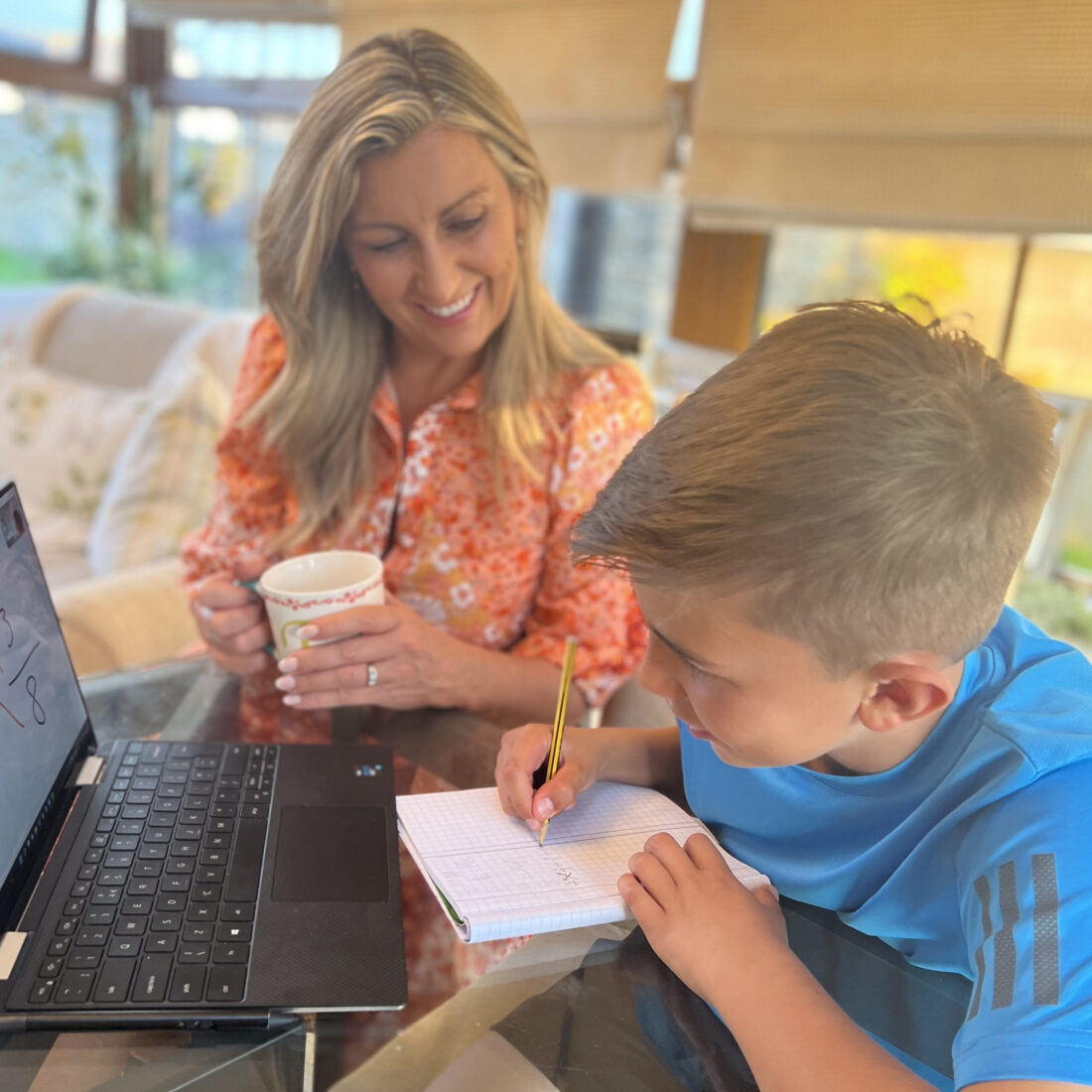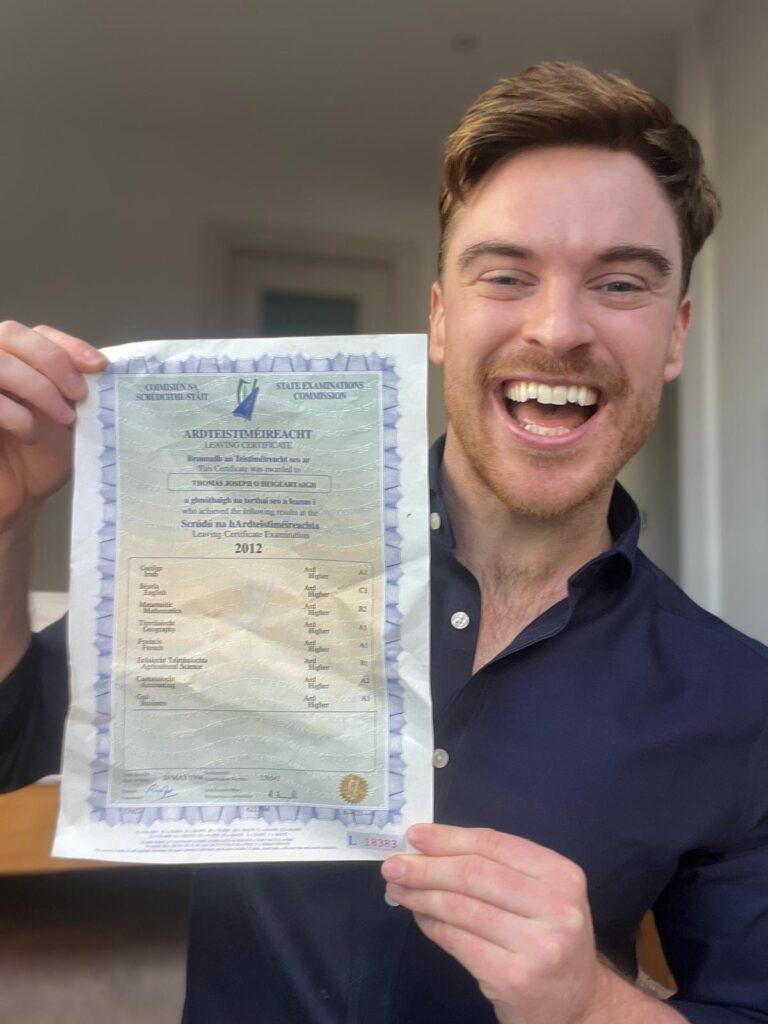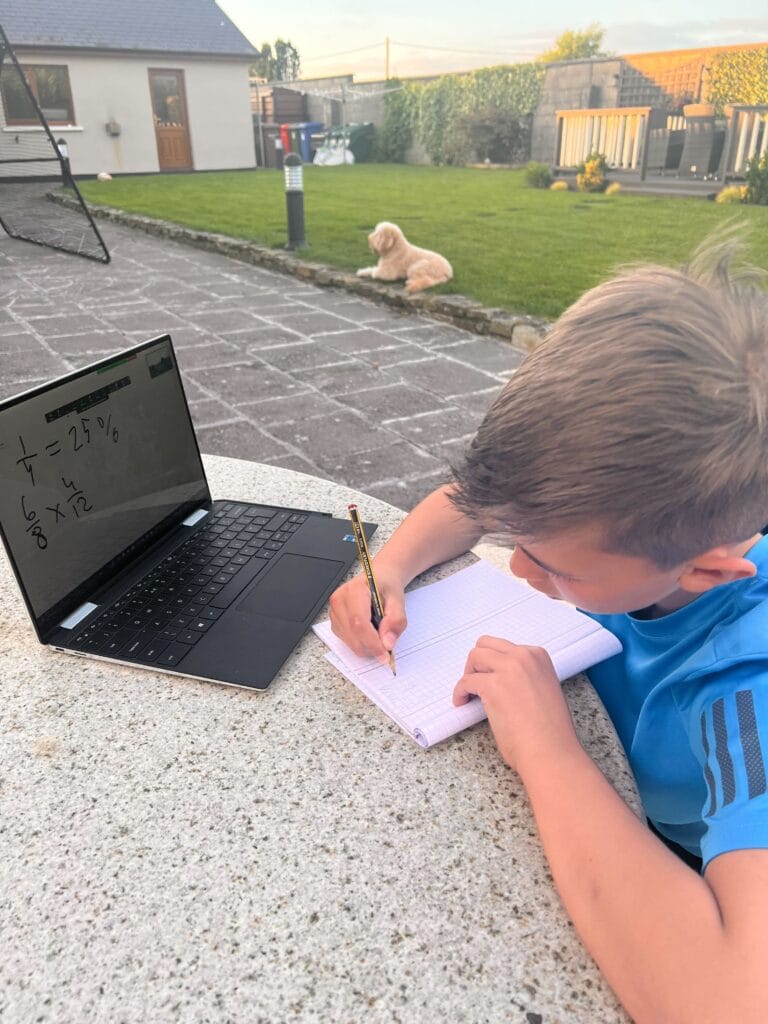WhatsApp Us: +353 87 202 0389
Email: info@btmaths.com

How can you actually help your child’s with Maths?
Every second parent seems to ask me that. And it’s hard.
It’s been a long time since you’ve been in school yourself. The courses change. The Maths looks a bit different. And often, it leads to more harm than good — everybody at the kitchen table getting frustrated.
We have taught almost 12,000 students at Breakthrough Maths over the last 5 years. Talking to parents and students alike, a couple of things really work. I can pin it down to about three things:
1) Better Structure
2) Understanding the English
3) Household Effort
I’ll dig into what that means in practical, tangible terms.
Structure: Setting a Homework Time
The easiest win you can have at home is to instil a structure at homework time.
Doing homework at set times should become a non-negotiable at home. It removes the ‘dread’ of homework. It’s not left hanging until 11pm at night. There’s one time for homework, and that’s it.
If you were training for a marathon, you wouldn’t train by running “whenever.” You’d have a plan. A schedule. It’s the same with homework. Especially if they’re struggling with a subject like maths.
According to a 2024 study by the Journal of Family Theory & Review, it was found that when a child has a consistent routine, they have higher cognitive outcomes, improved self-regulation, and increased readiness for school and academia. The correlation between high academic performance and consistent study routines is undeniably positive.
When it comes to my own students at Breakthrough Maths, I encourage their parents to set a time for their child’s homework. Preferably after dinnertime. Around 7:30 or 8 o’clock. They need to be at the kitchen table or their desk. No phones. No distractions. Just 30 minutes of quiet focus. And this doesn’t have to be forever either. I understand there may be after-school activities or busy social lives. But they need a routine. Until the numbers stop looking like a foreign language. Or until they start getting a few wins in their exams.

Never ever underestimate what that consistency does for their confidence and grades. It tells them this matters. What they’re doing can have huge effects on their results and self-belief. When they see the grades go from 60% to 80%, they think ‘we’re not just doing maths when there’s nothing better to do’. We’re showing up, every night, same place, same time. Think of it like building muscle. Bit by bit, it gets easier. Their stamina improves. Their understanding grows. Their motivation increases. But it all starts with sitting down. Same time. Same place. Every night.
It’s all about progress, not perfection. A phrase I love to use.
Understanding the English, Not the Maths
I can already hear you panicking in your head. “Sure I don’t know how to help my child if they’re stuck. I don’t even know how to do this stuff anymore!” Well the fantastic news for you is that you don’t have to.
One of the biggest reasons why kids struggle to do maths questions isn’t the maths itself. It’s the words. It’s the English.
They read the question. It’s full of long words, letters and numbers. Sometimes a load of waffle to make it extra confusing. And they don’t know what’s actually being asked of them. So they give up. Or guess. Or freeze. A lot of students aren’t struggling with the maths. They’re struggling with the comprehension.
For example, a 2018 study conducted by the Scientific Studies of Reading found that children who had strong language skills but weaker maths abilities consistently outperformed students with the opposite skillset. Making sense of the question itself is far more important than knowing any formula or calculation.
Your job is to slow them down. Help them dissect the question. Understand it. What are they being asked to do? What information is useful? What parts are irrelevant and just there to confuse them? Read the question out loud together. Break it into chunks. Highlight key bits. Ignore the noise.
Once they get a grasp of what’s actually being asked, the maths bit often follows. Stuff that they might not even realise that they know. So instead of saying, “Here’s how to solve it,” try saying, “What do you think the question is asking?” Help them build that muscle. It’s not about the answer itself. It rarely is to be honest. It’s about teaching them how to find their own way through the fog. So just know that once you sort the English, they’ll sort the rest.
After all, how do you eat an elephant? One bite at a time.
And the last step is what will really help them nail their exams.
Make Exams a Family Event
I think this step is very underrated. But, it really helps. When your child’s maths test is coming up, it shouldn’t feel like their stress. It should feel like a joint goal. You’re in this together.
Put the test date on the fridge. Circle it. Let everyone in the house know that it’s coming. Remind them in the car. At dinner. At the weekend. Reminding them isn’t putting additional stress onto them. It’s additional support. You’re not there to nag them. You’re letting them know that they’ve got a team behind them. We’re backing you. Let’s work together this week. They’re not doing the hard work alone.
In 2022, a study conducted on over 9,000 students by the School of Humanities and Social Sciences found that a supportive family environment has a strong correlation with better academic performance. It can be difficult for a student to focus if they feel like they don’t have a solid support system.
Support can’t guarantee that they will pass their exams and get a top grade. But, it will more than likely encourage them to try. And that’s the most important part of the process.

When a student knows the people in the house are rooting for them, things shift. They don’t feel alone. They feel seen. And that makes a big difference. Moody teenagers would never admit it, but they want that support. Make a deal with them: “You put in the effort, and we’ll match it.” That could be some extra pocket money, a trip away, or even a card to say well done. It sounds simple. But when a student sees everyone else care, It makes a huge difference.
Be Their Calm in the Chaos
To sum it up, your child doesn’t need you to be Einstein. They just need you. Someone who will show up for them. Someone who will help them to build a routine. Someone who will help them to understand the question, not just the answer. And someone who will rally the household when a test is coming.
Most of all, they need that sense of confidence. That’s what you’re really building every evening at the kitchen table. Not a genius. But a trier.
Try, fail, learn — that’s what Maths is all about.
If all else fails and neither you nor your child know where to begin when studying, read my post about the ‘Think In Ink’ study method. It’s the most definitive and effective way to study.
And if you ever feel stuck, reach out. That’s what Breakthrough Maths is here for you, to help build that Maths confidence of every child.



